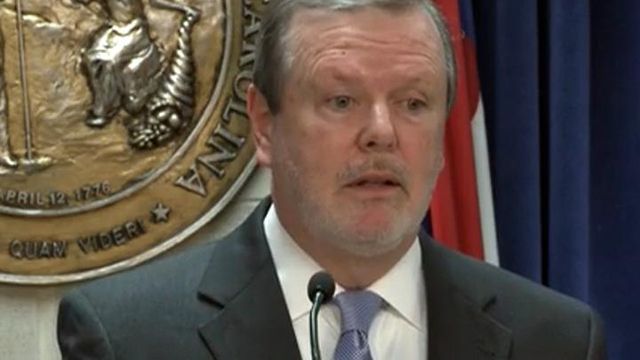Higher taxes on food, services could replace NC income tax
Republican legislative leaders are crafting a package of changes to North Carolina's tax code that they say will stimulate economic growth, including slapping a 6 percent sales tax on groceries.
Posted — UpdatedLawmakers phased out the state sales tax on food in the late 1990s, saying that scrapping the 4 percent tax would give low-income families a needed break. Counties continue to collect a 2 percent food tax.
The GOP, which now controls the General Assembly, is pushing to lower the individual and corporate income tax and use a higher state sales tax applied to more things to make up for the lost income tax revenue. Food should be taxed, they say, because grocery spending is dependable.
Senate President Pro Tem Phil Berger said Wednesday that the state's current tax model dates to the 1930s and doesn't really fit to North Carolina's changing economy. So, tax reform is critical to the state's future.
"It's important for us in terms of our competitive posture with other states," he said. "It's important for us in terms of making sure we have a fair allocation of the cost of government across the spectrum of economic activity."
Details of the tax reform package are likely to be rolled out later this month, but the prospect of a higher sales tax on food already leaves many shoppers with a bad taste in their mouths.
"Food is high enough now. Everything is taxed – taxes here, taxes there," Phyllis Branch said Thursday. "We've got to eat, so they kind of got us in a bind."
Raising the sales tax on food from 2 percent to 8 percent would add $312 to the annual grocery bill for someone who spends $100 a week on food at the supermarket.
"It's not a progressive tax, where those at the higher end pay more and those at the lower end pay less," said Bill Rowe, general counsel and director of advocacy for the left-leaning North Carolina Budget and Tax Center. "Everybody's paying the same amount, and so, if you're of modest means, you're going to be paying a lot more in taxes that way."
Republican lawmakers contend that those costs will be offset by lower income taxes. Rowe notes, however, that many low-income families don't owe any state income tax, so they won't benefit from a cut.
"It just really appears to be making up for cuts for folks at the higher end and corporations, which really does strike me as being a very unfair way to go," Rowe said.
Related Topics
Copyright 2024 by Capitol Broadcasting Company. All rights reserved. This material may not be published, broadcast, rewritten or redistributed.






